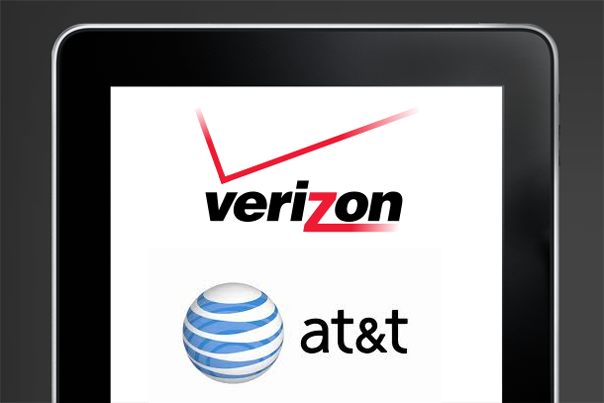|
|
Continue reading ETI Views and News at
econtech.com,
or download a
printer-friendly version.

Follow us on Twitter @EconAndTech
|
|
Apple's iPad Mini and implications for wireless competition
|
|
 It was Apple's second special event of the fall, and there really wasn't any doubt as to what product was going to be announced: the new iPad Mini. With prices ranging from $329 to $659, the 7.9 inch tablet fills the size gap between the iPhone and full sized iPads. Just like its bigger brother, the iPad mini comes in several "flavors" and users can choose between a wifi-only model, and one that comes with 3G/4G cellular capability. That this iPad offers cellular data capability isn't newsworthy in and of itself, but Apple's pricing and configurations highlight some interesting issues affecting wireless competition.
It was Apple's second special event of the fall, and there really wasn't any doubt as to what product was going to be announced: the new iPad Mini. With prices ranging from $329 to $659, the 7.9 inch tablet fills the size gap between the iPhone and full sized iPads. Just like its bigger brother, the iPad mini comes in several "flavors" and users can choose between a wifi-only model, and one that comes with 3G/4G cellular capability. That this iPad offers cellular data capability isn't newsworthy in and of itself, but Apple's pricing and configurations highlight some interesting issues affecting wireless competition.
First, cellular-enabled iPad Minis retail for $459 to $659. This price range is almost exactly the same as the full retail price range for the current smattering of smartphones available on the market. AT&T will sell a full-priced iPhone 5 for $649 or an HTC One X for $499. It has long been standard practice in the US for carriers to sell handsets for less than retail value, and in some cases, with a subsidy at less than wholesale cost, bundling the remaining price of the phone into the monthly recurring price of the wireless service. So rather than paying $649 for an iPhone, customers pay $200 up front and higher monthly wireless prices over a contractual period of two years to make up the difference. This practice was initially introduced because it was believed that customers would not be willing to pay the full up-front costs of wireless devices. Now, with Apple's success at selling full-priced cellular tablets (analysts expect Apple to sell more than 7-million units in the quarter), the practice of tying devices to wireless providers using two-year contracts and charging early termination fees seems outdated and consumer-unfriendly. AT&T and Verizon will not discount their wireless prices even if you buy your device at full price, although some smaller carriers do.
Second, Apple's iPads retain, unnecessarily, carrier-centric restrictions. Even though both versions of the iPad Mini share the same GSM, HSPA, and LTE cellular radios, they are sold on a carrier specific basis. A "Verizon" iPad cannot be activated with AT&T. Moreover, Apple's "AT&T" iPad is configured to run on LTE Band Class 17. As we discussed in Views and News, July 2012, devices restricted to Band Class 17, rather than the broader and more inclusive Band Class 12, result in less competition in the wireless services market. Customers cannot roam on many smaller and regional cellular carriers, nor can the device be activated on these other carriers networks. Those carriers are similarly unable to offer the latest devices without agreeing to onerous purchase commitments and paying more than their larger rivals. Perhaps Apple can rollout devices that consumers can use on the wireless carrier of their choice, without restrictions or impediments to switching, or perhaps the FCC can require it. Now that would warrant a "special event."
For more information, contact Colin B. Weir at cweir@econtech.com
Read the rest of Views and News, October 2012.
|
|
|
|
About ETI. Founded in 1972, Economics and Technology, Inc. is a leading research and consulting firm specializing in telecommunications regulation and policy, litigation support, taxation, service procurement, and negotiation. ETI serves a wide range of telecom industry stakeholders in the US and abroad, including telecommunications carriers, attorneys and their clients, consumer advocates, state and local governments, regulatory agencies, and large corporate, institutional and government purchasers of telecom services. |
|
|